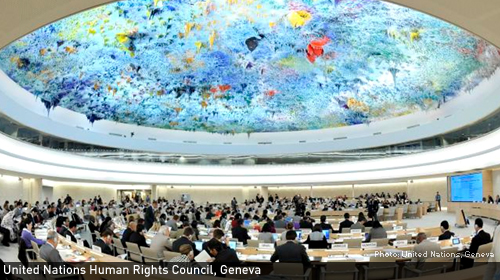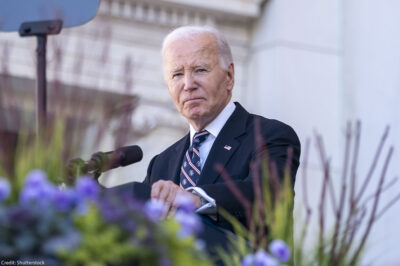
One year ago, the ACLU's Amy Fettig stood before the United Nations Human Rights Council to condemn the use of solitary confinement in the United States. In a written statement also submitted to the Council last year, the ACLU expressed serious concern over the imposition of the death penalty across the nation. Sadly, we find ourselves this year once again at the same body, imploring the U.S. to live up to its human rights obligations with regard to these practices.
In an event meant to spread awareness about the human rights implications of solitary confinement and the death penalty, the U.N. Special Rapporteur on Torture, Juan Mendez, appeared yesterday alongside the ACLU's Jamil Dakwar and other leading experts and advocates at a briefing sponsored by the ACLU, Human Rights Advocates, Penal Reform International, and the Swiss Mission to the United Nations. The briefing examined the global human rights implications of solitary confinement and the death penalty, the use of these punishments in the U.S. and Brazil, the death row phenomenon, and extreme sentencing, private prisons, and mass incarceration in the U.S. The panelists put these practices in the context of accepted and evolving international human rights standards and provided recommendations for the future to ensure that all incarcerated persons are treated with dignity and respect under the law.
The United States is one of the few countries in the world where both the death penalty and solitary confinement are practiced. Although there have been some positive developments in recent years, including a drop in the number of new death sentences and repeals of the death penalty in five states, these practices stand in stark contrast to the growing international legal and moral consensus against these forms of punishment.
In the past two years, Mendez has condemned both the death penalty and solitary confinement, stating that both often violate the prohibition on torture, cruel, inhuman or degrading treatment or punishment. Mr. Mendez called for the absolute prohibition of the death penalty and solitary confinement on juveniles and persons with mental disabilities, recommended the implementation of alternative disciplinary sanctions, and called for the universal prohibition of solitary confinement exceeding 15 days. The ACLU applauds Mr. Mendez's robust action on these issues and hopes the U.S. will heed his recommendations as steps towards mending our broken criminal justice system.
Since 1976, when the modern death penalty era began in the U.S., 1,323 people have been executed in the nation, and as of October 2012, there were over 3,146 people awaiting execution across the country. Troublingly, racial minorities have accounted for a disproportionate 43 percent of total executions since 1976 and 55 percent of those currently awaiting execution. Human rights in our nation's prison system are further damaged by the explosion in the use of solitary confinement across the United States. It is estimated that over 80,000 individuals are currently being held in substantial isolation across the country for days, weeks, months or even years at a time. This includes children, vulnerable LGBTI prisoners, immigrants, and mentally ill individuals. The ACLU detailed these and other human rights violations in a submission to the Human Rights Committee (the body charged with monitoring compliance with the International Covenant on Civil and Political Rights) last December.
International engagement is critical in holding the U.S. accountable to human rights commitments and obligations. Next week, the ACLU will bring its concerns to the Inter-American Commission on Human Rights, testifying at a hearing on human rights and solitary confinement in the Americas. The ACLU is proud to be part of a strong and growing human rights movement in the U.S. - reinforced by an evolving international consensus - to abolish the death penalty and limit the use of solitary confinement, ensuring these affronts to human dignity have no place in civilized society.
Learn more about human rights and other civil liberty issues: Sign up for breaking news alerts, follow us on Twitter, and like us on Facebook.




